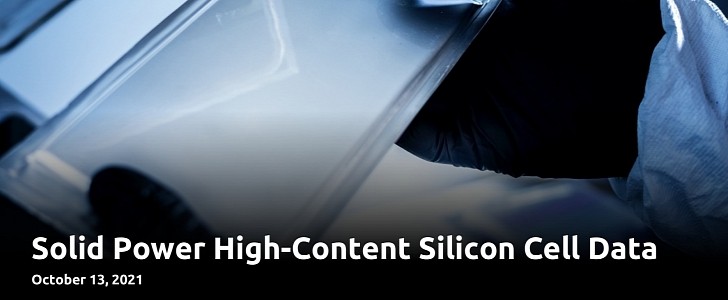One of the main arguments in favor of solid-state batteries is that they would be way safer than the current ternary cells. Solid Power wanted to prove that with its batteries and put them to third-party testing. After being perforated with a nail, overcharged, and submitted to a short circuit, Solid Power cells did not catch fire in any situation.
That is a great result for the company, which uses a sulfide as its solid electrolyte. The video below praises its qualities and explains them. However, after investigating sulfides, QuantumScape said it would not use them because they would not prevent dendrite formation and could react with the air. If that happened, it could create hydrogen sulfide, a toxic gas. Solid Power did not mention if it had any such problems. The fact that the cells did not catch fire probably helps to avoid these issues.
According to Solid Power, its 0.2 Ah pouch cells also didn't present a temperature increase when they were perforated: they did not exceed 27ºC (80.6ºF). However, after being overcharged to 200% of their state-of-charge, temperatures rose to 35ºC (95ºF) when under compression and to 69ºC (156.2ºF) when uncompressed. Solid Power batteries were also submitted to an external short circuit. There was no fire, smoke, venting, or loss of material with the cells in all cases.
Solid Power also said that its solid-state batteries would have a high-silicon content. This silicon is used for the anodes, which allows the battery to have rapid charging. Solid Power also works with lithium metal anodes, like QuantumScape. The problem is that the silicon anodes do not provide as much energy density as lithium metal. The main benefit must be related to cost.
Despite lacking the same numbers presented by lithium metal cells, Solid Power’s high-silicon content batteries would reach 350 Wh/kg. That’s around 90 Wh/kg more than the best lithium cells currently used by cars, or a 35% improvement. Think about that as 35% more range or a 35% lighter battery pack for the same energy density. That should have a significant effect in improving the range.
Solid Power did not disclose when these new solid-state cells will be available for automotive use. It just said that they could retain 82% of their capacity after 1,000 cycles. If a battery pack offers 300 miles of range, that means you can use it for around 300,000 miles and still have a range of 240 mi after that time. That’s something that also happens to current cells. The advantage is taking fire and thermal runaways out of the equation. Let’s hope the production version of Solid Power’s cells can keep that promise.
According to Solid Power, its 0.2 Ah pouch cells also didn't present a temperature increase when they were perforated: they did not exceed 27ºC (80.6ºF). However, after being overcharged to 200% of their state-of-charge, temperatures rose to 35ºC (95ºF) when under compression and to 69ºC (156.2ºF) when uncompressed. Solid Power batteries were also submitted to an external short circuit. There was no fire, smoke, venting, or loss of material with the cells in all cases.
Solid Power also said that its solid-state batteries would have a high-silicon content. This silicon is used for the anodes, which allows the battery to have rapid charging. Solid Power also works with lithium metal anodes, like QuantumScape. The problem is that the silicon anodes do not provide as much energy density as lithium metal. The main benefit must be related to cost.
Despite lacking the same numbers presented by lithium metal cells, Solid Power’s high-silicon content batteries would reach 350 Wh/kg. That’s around 90 Wh/kg more than the best lithium cells currently used by cars, or a 35% improvement. Think about that as 35% more range or a 35% lighter battery pack for the same energy density. That should have a significant effect in improving the range.
Solid Power did not disclose when these new solid-state cells will be available for automotive use. It just said that they could retain 82% of their capacity after 1,000 cycles. If a battery pack offers 300 miles of range, that means you can use it for around 300,000 miles and still have a range of 240 mi after that time. That’s something that also happens to current cells. The advantage is taking fire and thermal runaways out of the equation. Let’s hope the production version of Solid Power’s cells can keep that promise.
@SolidPowerInc's all-solid-state cells could reduce the risk of EV fires and lead to significant battery pack cost reductions by removing the flammable liquid and gel electrolyte. https://t.co/hzKGil4GjF
— Doug Campbell (@dougcampbellSP) October 13, 2021












